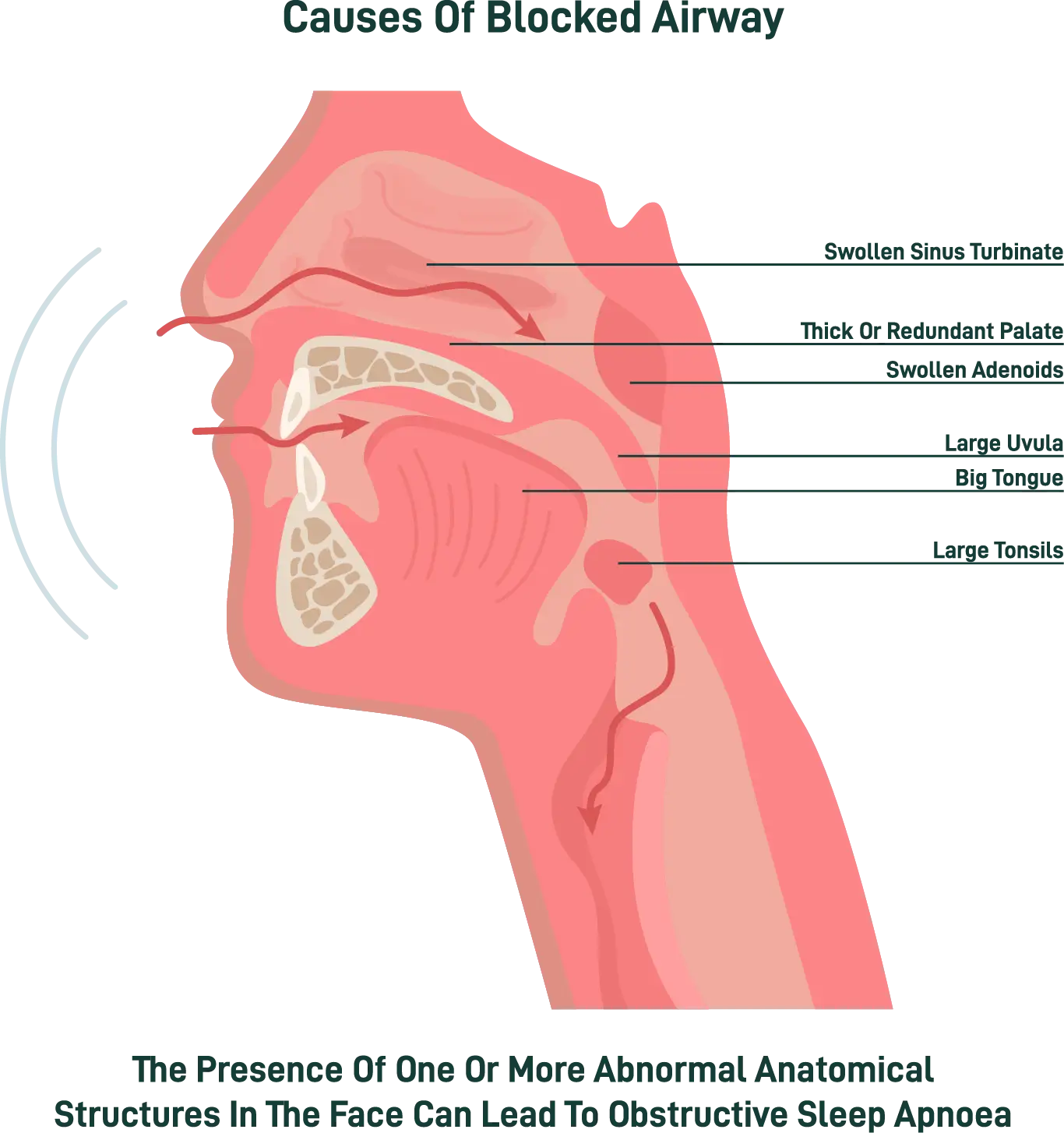Are You Struggling to Breathe at Night?
Waking up gasping, snoring loudly, or feeling unrefreshed can all point to airway obstruction during sleep. At the TMJ & Sleep Therapy Centre of Kansas City, we identify whether your breathing issues stem from airway restriction, jaw position, or muscle tone — and design treatment that helps you breathe freely again.
Understanding Difficulty Breathing and Sleep-Disordered Breathing
Difficulty breathing at night is one of the most overlooked signs of a sleep-related breathing disorder. Many people dismiss symptoms like snoring, restless sleep, or nighttime choking as normal — but they can be early indicators of airway collapse or obstruction during sleep.
“Sleep-disordered breathing affects nearly 1 in 4 adults and can contribute to fatigue, cardiovascular stress, and TMJ strain.”
When airflow is restricted, your body must work harder to breathe. This can cause repeated awakenings, clenching or grinding, and oxygen desaturation that stresses the heart and nervous system.
Over time, the muscles of the jaw, neck, and upper airway become overactive, further aggravating TMJ and postural problems.
At the TMJ & Sleep Therapy Centre of Kansas City, we look beyond traditional sleep testing to understand the structural causes of your breathing difficulty. Using imaging, airway analysis, and muscle evaluation, we design therapies that support healthy breathing — not just during sleep, but throughout your day.
When To Seek Treatment
Waking suddenly or struggling to breathe can signal airway obstruction or sleep apnea that needs evaluation.
Snoring and chronic mouth breathing often indicate narrowed nasal passages or jaw position issues affecting airflow.
Low oxygen during sleep can trigger vascular headaches and leave you feeling drained despite a full night’s rest.
When airflow is restricted, your body activates the jaw muscles to reopen the airway, often causing TMJ strain or worn teeth.
Relief begins with the right diagnosis
Difficulty breathing during sleep should never be ignored. At the TMJ & Sleep Therapy Centre of Kansas City, we specialize in identifying airway obstruction and restoring proper function through gentle, non-surgical therapies that improve rest and vitality.

Frequently Asked Questions About Difficulty Breathing
Many patients experiencing breathing problems during sleep do not realize the issue can start in the mouth and jaw. Here are some of the most common questions about difficulty breathing and sleep-disordered breathing.
TMJ & Sleep Therapy Centre
Global Expertise
As proud members of TMJ International, we are part of a global team dedicated to advancing collaborative care in TMJ disorders and sleep therapy. Together, we bring innovation, expertise, and compassionate treatment to help patients find lasting relief and a healthier quality of life.

If you’re struggling with jaw pain, headaches, or sleep issues, the TMJ & Sleep Therapy Centre of Kansas City is here to help. Our team specializes in non-surgical TMJ and sleep therapy solutions designed to restore comfort and improve your quality of life.




